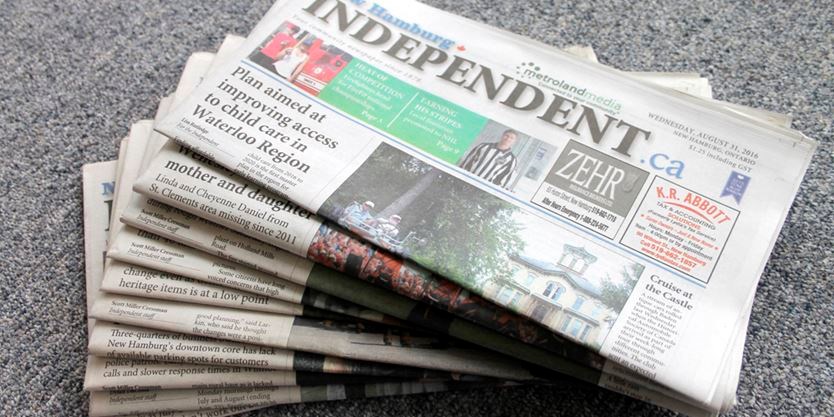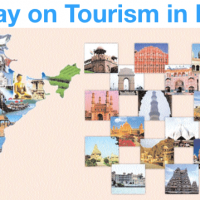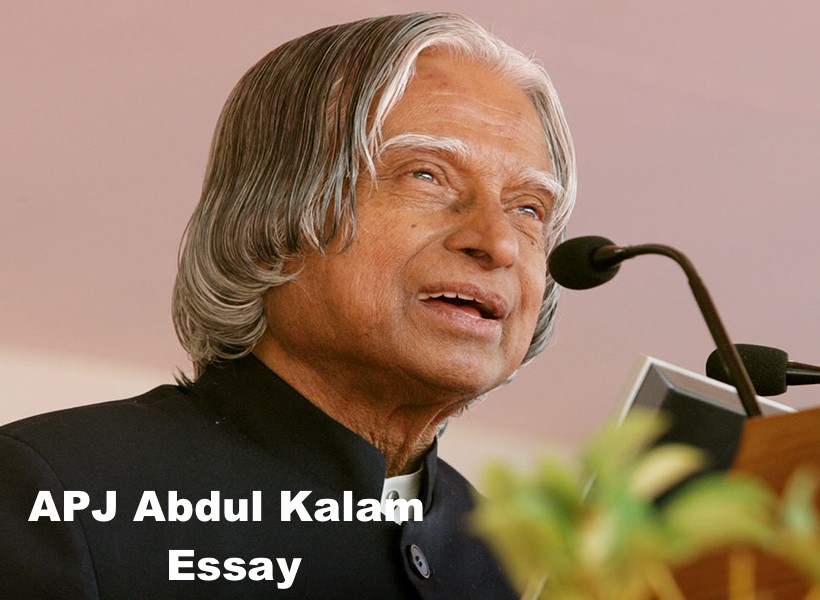Hello Friend This is special category for our small reader who study in school. If they looking for english essay for their school homework or any kind of english essay article then this special category might help you all guyz. in this article we will share Essay on Newspaper in English for all class children and student . Initially we have published 300 word and 1000 word article for Newspaper.
Essay on Newspaper in English

The origin of newspapers in India dates back to the 18th century. The first in this genre was published in English in Calcutta in 1790 by James Augustus Hicky His Bengal Gazette was the first English newspaper and also the first printed newspaper in the Sub-continent.
This was followed by Bombay Her old in 1789 followed by Bombay Courier the following year. This paper finally merged with the Times of India in 1861 But the first newspaper published in any of the native Indian languages was in 1818 with the publication of Samachar Darpun in Bengali, and the first Hindi newspaper Samachar SudhaVar shan began its circulation in 1854. Prior to that a newspaper in Kannada language Mangaloory Samachar was published in 1843 and the first Malayalam newspaper Rajya Samachar started circulation in 1847.
Also Read:
- Subhash Chandra Bose Essay
- Jhansi Ki Rani Story
- Essay on Durga Puja for Children
- Quotes on Life in English
- Independence Day Essay
- Essay on Taj Mahal in English
The first Marathi newspaper was Dyan Prakash and the first Tamil newspaper । was Swadesmitan
According to the data made available by the Registrar of Newspapers for India RNI) for the year 2010-11, the number of newspapers and periodicals published in India was 82,222 . This included 10205 dailies, 394 bi-tri-weeklies , 27321 weeklies, 10422 fortnightlies, 25,072 monthlies, 5,208 quarterlies719 annuals and 2,881 othersThese newspapers were published in as many as 152 languages and dialects during the year 2010-11.
The largest number of these (32793) was published in Hindi followed by 11,478 in English. There were 5,643 bilingual newspapers. Except for Kashmiri language the daily newspapers were brought out in all the principal languages of the country and they were published from all states and union territories
The state ranking number one in this respect is Uttar Pradesh with the publication of 13,065 newspapersThe state ranked number one even in the matters of dailies with 1,909 newspapers.
The oldest existing newspaper is Bombay Samachar, a Gujarati newspaper published from Bombay since 1822 The office of the Registrar of Newspapers for India (RNI) came into existence on 1st July, 1956 on the recommendation of the first Press Com mission in 1953 and by amending the Press and Registration of Books Act, 1867.
The functions of RNI are both statutory and non-statutory Statutory functions include compilation and maintenance of a register of newspapers con training particulars are all the newspapers published in the countryIt also includes issuance of certificates of registration to the newspapers published under valid declarations. It scrutinises and analyses annual statements sent by the publishers of newspapers every year.
The RNI in forms the district magistrates about availability of titles to the intending publishers for filing declarations and it ensures that newspapers are published in accordance with the provisions of the Press and Registration of Books Acts Non-statutory functions include the formulation of newsprint allocation policy with guidelines and on competence to issue eligibility certificates to the newspapers enabling them to procure indigenous newsprint.
The RNI assesses the requirements and needs of newspaper establishments to import printing and composing machinery and allied materials before certify. ing the same . The national readership survey (NRS) initiated in 1974 was aimed at providing data as basis for buying and selling advertising space in the press mediumIt also provides data on comparative exposure levels to other major mass media like television, cinema and radio.
To wriggle out of the monopoly of the NRIs some media got together to form Indian readership survey (IRS) in 1994 primarily to offer the members a readership and market study to rival the NRSIRS is a continuous readership study with a sample of over 2,50,000 and data is collected and released every six months to mitigate any seasonal biases.
Both NRIs and IRS subsequently merged into what came to be known as Reader ship Studies Council of India (RSCI).
It was soon felt necessary to lay down a standard and uniform procedure by which a member publisher should compare its net paid sales Audit Bureau of circulation (ABC came into being to address this issue.
This is done by having the circulation figure checked and certified by a firm of chartered accountants approved by the BureauIt issues ABC certificates very six months to those publishers whose circulation figures conform to the rules and regulations set out by the BureauPress Information Bureau (PIB) is a nodal agency entrusted with the task of disseminating information to print and electronic media on government policies programme initiatives and achievements
This is done by press releases, press notes, feature articles, background papers press briefings, photographs press conferences, interviews, database available on Bureaus website press tours etc Then there are news agencies like Press Trust of India (PTI), United News of India (UNI), and Press Council of India that provide efficient and unbiased news to all subscribers The Press Council of India functions under the Press Council of India Act, 1978.It is a statute or quasi judicial body, acting as a watchdog of the press It adjudicates the complaints, if any against the press for violation of ethics and for violation of the freedom of the press respectively.
Prasar Bharati is the largest public broadcaster in India. It is an autonomous body that comprises Doordarshan (DD) television and All India Radio (AIR) networks. These were earlier tagged with the Ministry of Information & Broadcasting, GOI.
One would be tempted to conclude that with the mushrooming of television news channels the importance of newspapers will have taken a severe beating That, however, is not the case for a large number of people still believe that it is the printed words that carry conviction.
There is no denying that electronic media has invaded our reading space, but it has certainly not replaced newspapers. There is no substitute to reading.
If viewership has increased, it has not done so at the cost of readership. Fleeting moments may excite, but they do not usually have a lasting impact chiefly because there is no scope for referring back to them A newspaper has the stay ing power because it can always be referred back to and retrievals from the archives can be made with comparative easeViewing may be a trill, but reading is always a pleasure Newspapers there fore have created permanent space in the minds of reading public.
Newspapers play a very important part in our day-to-day life. Electronic media can never play that role with the same degree of efficacy as newspapers.
Essay on Newspaper in English
The newspapers play an important role in the life of the modern man. Atypical urban man even when in a hurry to prepare for going to an office, has the habit of reading his favourite newspaper at the time of break fast or even earlier. He may get his breakfast or not but he must get his newspaper.
In the newspaper we read news, views, reviews and previews. The newspapers also carry several kinds of articles and advertisements. We have articles regarding political, social and economic matters, matters Concerning children, women, students, the youth in general, sports, cinema, TV, etc. The burning problems of the day are also discussed in newspapers. Then there are editorial comments. There is also a column called “Readers’ Column” or “Editors’ Mail” which gives views of the readers on various kinds of problems and aspects of life.
In the newspapers we also have poems, stories and reviews of books.
Since newspapers are owned by Vested interests who give only biased twist to events. Some newspapers only aim a tearing money and publish gory and unpleasant pictures and details of incidents which do a lot of harm to certain individuals and sections of society. | Here is a report depicting the negative side of the journalistic business when it tends to only earn money, forgetting all responsibilities to the sentiments and sensibilities of the Society at large and the pursued victims particular :
A journalist when filing a human interest story relies on his own compassionate streak to lend a soft touch to HIS subject, a touch which will in addition to presenting TIC facts objectively, also communicate to the readers a sense 01 compassion and sympathetic understanding. Which is why
when Princess Diana Was killed in a car Crash as she and Dodi tried to shrug off the paparazzi who were chasing Acne for yet another juicy, nicety, money-spinning Autograph, it shook the social conscience of Britain who like vultures were feeding on the sensational tabloid tid- bits.
The paparazzi were accused of being cruel, and insensitive. They could never hope to understand the agony of the couple they were chasing, whose privacy they were intruding upon and selling to the collective majority. The same streak of compassion is what prevents newspaper editors from choosing less harsh headlines, toning down their unconfirmed accusations and avoiding giving gory details or photographs of accidents, rapes and murders.” There is, no doubt, that even the mightiest kings and others from royal families and politicians who may not be afraid of anybody are afraid of the newspapers.
But this also puts a great responsibility on the newspapers to be always conscious of their duty towards society, and individuals that comprise this society. It is the duty of the newspapers to play a positive and nota negative role towards society, country and mankind at large.
Power/Freedom of the Press The press, the fourth estate, has immense powers, probably not enjoyed by any of the mightiest kings, as already stated. It was the press that brought to light the Watergate Scandal and was instrumental in ending the corrupt rule of the American President Nixon who had the power to destroy the whole world just by pressing a black button.
It was the press which had told about Americans’ oppressive practices against the Vietnamese and it was the press again which highlighted the BillClinton-Monica Lewinsky affairs.
In the Punjab, it was the press which became instrumental In highlighting the biggest (PPSC) recruitment scam in the hd In Pointing out the possible involvement of some members the judiciary in this crime.
We must appreciate the views of a redoubtable journalist, the President of the Editors’ Child of India : 1 am all for free flow of news and views. I do not subscribe to the concept of pre-censorship or curbs. The Indian Press has been quite liberal and forward looking in accommodating varied viewpoints, howsoever unpalatable.
We have also been practising the concept of freedom of the Press objectively and without being selective.” The concept of pre-censorship holds ground when the press becomes irresponsible and partial and when it speaks in a voice detrimental to the national interests, as for instance, when it incites communal riots, or takes sides with the vested interests ignoring the interests of the common man or the victims.
The learned journalist, however, admits that there is some problem, indeed : Herein lies the real problem. The newspaper industry has been totally commercialised and it, understandably, follows cut throat practices of most business establishments Nothing wrong in running newspapers professionally and as a fair business proposition.
The danger lies in allowing them to be playthings of foreign money and vested interests in the name of freedom of the Press.”
The editor was Commenting in a powerful article on the allowing of the government the entry of the Foreign Direct Investment (FDI) in the print media, The learned journalist in his reaction to the FDIs entry in the print media said : “Information has to be free. Views can be varied.
What can be disquieting is an attempt to control the thought process through foreign money. He who pays the piper calls the tune. Herein lies the danger to free swadeshi thinking from the grassroots upward.”
Also Read:
- Essay on Pollution in English
- Village life Essay in English
- Essay on Myself in English
- Essay on My Best Friend
- Essay on My School
- Essay on Family in English
- First Day at School Essay
- Corruption Essay in English
- Women Empowerment Essay
- Republic Day Essay
- Mahatma Gandhi Essay
- Essay on Global Warming
- APJ Abdul Kalam Essay
- Diwali Essay in English





